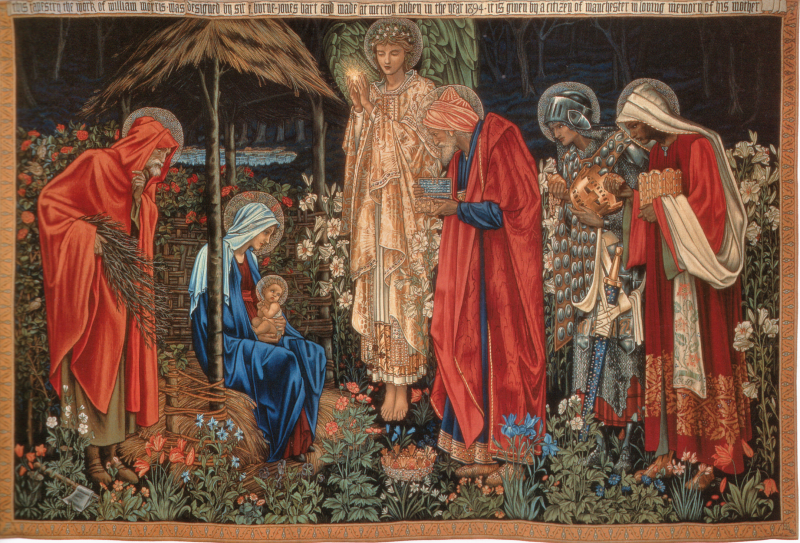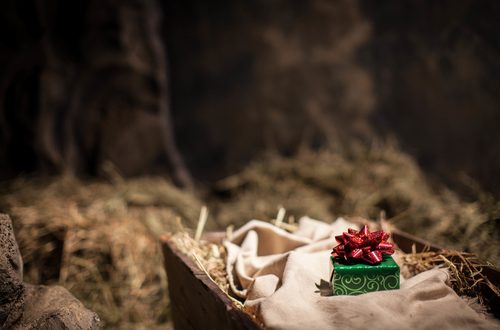
Epiphany and the Magi – How Should We Respond?
What can we learn from the journey of the wise men? Their visit, celebrated on January 6, marks the end of the 12 days of Christmas and is also known in the church calendar as Epiphany – “the appearing”.
The story recorded in Matthew 2:1-2, 9-11:
“After Jesus was born in Bethlehem in Judea during the reign of King Herod, Magi from the east came to Jerusalem and asked, ‘where is the one who has been born King of the Jews? We saw his star in the east and have come to worship him’… After they had heard the king, they went on their way, and the star they had seen in the east went ahead of them until it stopped over the place where the child was. When they saw the star they were overjoyed. On coming into the house, they saw the child with his mother, Mary, and they bowed down and worshipped him. Then they opened their treasures and presented him with gifts of gold and of incense and of myrrh.”
How amazing is that? The opulence of royalty from the east laden with finery, jewels and gifts contrasted with the smelly stable stall birthplace filled with animals, hay and a very poor couple from Nazareth. There is nothing commonplace in the Messiah King’s story. Whether or not Mary, Joseph and the child were still in the stable or in a house this was an extraordinary narrative.
Who were these “magi” and where did they come from? Some scholars say the name magi or magus (plural) is derived from the Iranian word magoi and could refer to those who were deeply interested in religion including the study of the stars and their impact on human events – “astrologers”. It is conjectured that “the east” could refer to the Medes and the Persians or even the Chaldeans.
We don’t know how many wise men there were nor exactly where they came from. The biblical text does not reveal their names though an early Christian text gave the men names assuming there were three: Melchoir, Balthasar and Caspar.
What stands out is the demeanor of these men who were guided by this spectacular star. They told Herod forthrightly that they came to worship this star foretold King. They had their gifts ready. Finding the child they immediately bowed down and worshipped him. Seeing the Christ Child prompted adoration, gift giving and worship of the child. Afterwards, being warned a dream NOT to adhere to Herod’s instructions, they returned to their country by another route.
The immediate response of these pagan men was adoration and worship. In the Presence Deity that was the obvious response. What must Mary and Joseph felt as they witnessed this. Did it confirm to them what they had been told? What must the angel Gabriel felt, the heavenly host – the Father and the Spirit watching?
All of these events were well timed and all the characters were playing their parts exactly as the Script had been written from eternity past. God chose to place them in the narrative of the Christ Child – the one referred to as Emmanuel…Word taking on human flesh”(John 1:1,14)? The revelation of Christ of Christ to the magi is a symbol of His revelation to the whole of the Gentile world – all nations to Christianity.
Biblical scholar Robin M. Jensen, in the article “Witnessing the Divine: The Magi in Art and Literature,” traces depictions of the magi through centuries of early Christian art and literature to reveal the extraordinary role they played as the first visitors to recognize Jesus as messiah.
How should I/we respond to this story?
• Thank God for His powerful, sovereign protection over and provision for the Christ Child and trust His sovereignty and His provision. It could be that the gifts from the Magi provided Mary and Joseph the means to make the journey to Egypt and survive there for 2 years.God provides for His children.
• Worship and praise my Savior like the Magi’s model of worship in the Presence of Deity.
• Be aware of and grateful for His orchestration of these perilous events – He is sovereign in my life.
• Know with confidence that God communicates to His children however is needed at the time as shown in His Divine guidance through dreams to the principle characters (Matthew 1:20; 2:12-13,19,22).
The story of the wise men is more that just a nice conclusion to the 12 days of Christmas… it is a clarion call for my worship of the same Christ they worshipped in the first century.
Psalm 95:6-7 “Come, let us bow down in worship, let us kneel before the Lord God our Maker; for He is our God and we are the people of His pasture, the flock under His care.”
The Adoration of the Magi, Handwoven wool tapestry,1890, English, William Morris and Co. Hermitage, St. Petersburg, Russia
Epiphany is primarily observed by Orthodox, Catholic and Anglican Christians and is one of the earliest feasts of the Christian Church.For further consdieration:
William Hendriksen, New Testament Commentary, Exposition of the Gospel According to Matthew.Grand Rapids, MI:Baker Book House, 1973.
Carolyn Vaughn. The Gifts of the Magi, Gold, and Frankincense, and Myrrh. The Metropolitan Museum of Art and Boston, MA:Bullfinch Press/Little, Brown and Company, 1998.
Robert E. Webber. Ancient-Future Time, Forming Spirituality through the Christian Year. Grand Rapids, MI:Baker Books,2004.
Originally Published January 6, 2016


